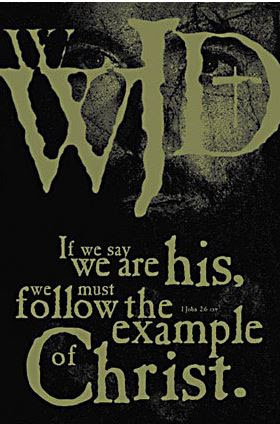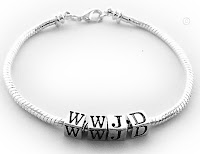Easter is now just three weeks away and, if you’re anything like me, your Easter cards are mailed out, but you’re still frantically looking for the perfect Easter gifts for those special people in your life! Weeks ago I put up my Easter decorations starting with the one that’s been in my family for many decades. That’s the one with the plastic skull-shaped rock called “Golgotha” and Jesus hanging on the cross and every year I add a few more heirloom-quality, Bradford Exchange figurines of those who were there at His crucifixion.
But I must confess that, as much as I look forward to the Easter parties, the presents and the Easter cookies, by this time in Lent, I’m getting tired of the constant holly jolly Easter songs on the radio and the “Empty Tomb” sales at all the department stores. I still look forward to the biggest day of the year however, and anyone who knows me, knows that I’m one of those in-your-face Christians that, when I’m wished a “happy holidays” at the store, I’ll tell them “Merry Easter” right back!
Nothing about the above sounds right to us. Have a Merry Easter..? Easter decorations..? That’s because there’s a dichotomy between the suffering and death of Jesus and our joy in His resurrection on Easter morning. Perhaps that’s why in so many Christian homes, Easter is not much more than a nice Sunday ham dinner. Many years ago an older woman came up to me after our church service. She was a life-long Christian who loved the Lord but firmly walked her own pathway and brooked no hindrance from above. It was during the season of Lent, the sermon had been on fasting, and I could tell by the expression on her face that she wasn’t going to tell me that she was so moved by my message that she was giving up chocolate donuts during the hospitality hour. She told me that she never enjoyed Easter because of sermons like that one on fasting and she disliked the whole idea of a gloomy self-reflective Lent. She told me that she loved Christmas because it was fun – Easter was not. She asked if there were any happy Easter songs we could sing in church...
She was right, of course. Easter is not fun. On Christmas day we have a gaily-lit tree and get presents. On Easter day we have an empty blood-stained cross and get Jesus. What’s most meaningful about Christmas is the birth of Jesus. But what we most love about Christmas are the non-religious and secular things: wrapped presents, snowmen, decorated trees, lights, food, drink, loud parties. Christmas is a fantasy – Easter the reality. Christmas is how we wish life would be year round – Easter is the way it is. Life ebbs and flows from one extreme to the next. From the highest of highs to the lowest of lows with the ordinariness of the mundane sandwiched in between.
We have many happy times in our life that give us wonderful memories. You and I have also had times of pain and suffering – we still will. We all experience times of discouragement, depression and weariness. Times of loneliness. Times of feeling betrayed and rejected by others. And yet in the middle of whatever hardship we have ever gone through, and will go through, we find the resurrected Jesus triumphant over illness, pain, suffering and death. The Son of God experienced great pain and suffering at the hands of the Roman soldiers, was betrayed by Judas, rejected by Peter, cried out in discouragement and despair in the Garden of Gethsemane and felt the weight of extreme loneliness after His disciples fell asleep.
Before Jesus took our sins to the cross that we might be redeemed and restored to our Heavenly Father, His human form suffered everything that we could ever go through. Jesus experienced the most intense severe pain that any human body can endure. In our worst hardships and suffering, Jesus enters into it with us. He knows what it feels like. He transforms our suffering and we are healed or taken to live with Him in eternity.
The hard days of Lent followed by Good Friday and then the glory of Easter is the never-ending cycle of life as we know it. We’re seeing the entire nation of Ukraine in an unbelievably horrific "Good Friday" of suffering and death. Among those for whom I pray daily, twelve are suffering and in pain today. Five battling cancer. Two are near death. Some facing surgery; others recovering from recent ones. One having their gall bladder surgically removed right now as I write this. Each one is going through a personal Good Friday. I’m not even sure that all of these twelve are aware that Jesus is with them right now. But He is.
The time of Lent in our Easter season is a time of self-reflection about the meaning of our life and our walk with God. During Easter week we remember the suffering and crucifixion of our Lord Jesus Christ but that’s tempered by our knowledge of what takes place Easter morning. We’ve read the Book. We know how Easter week ends. He is risen! He’s alive! We enter into His suffering knowing that He will be victorious over death because His resurrection has already happened in history. During our personal Lenten seasons and “Good Fridays,” we must also never lose sight of our own Easter morning that’s right around the corner. It’s not just a mere hope that Jesus will turn our trials into victories because, by His death on the cross and His resurrection, He already has. The good news of His resurrection that’s life-changing for you has already been written into your personal history!
Unless standing in line for over an hour to pick up your Honey-Baked Easter Ham is your idea of a good time, then you’d probably agree with the woman in my church – Easter is not a “fun” holiday. But for those who believe in and follow Jesus, it’s our most celebrated, joyful and important day of the year. Easter changed your life 2000 years ago! That first Easter morning changed everything, from then until the end of time. Amen?






